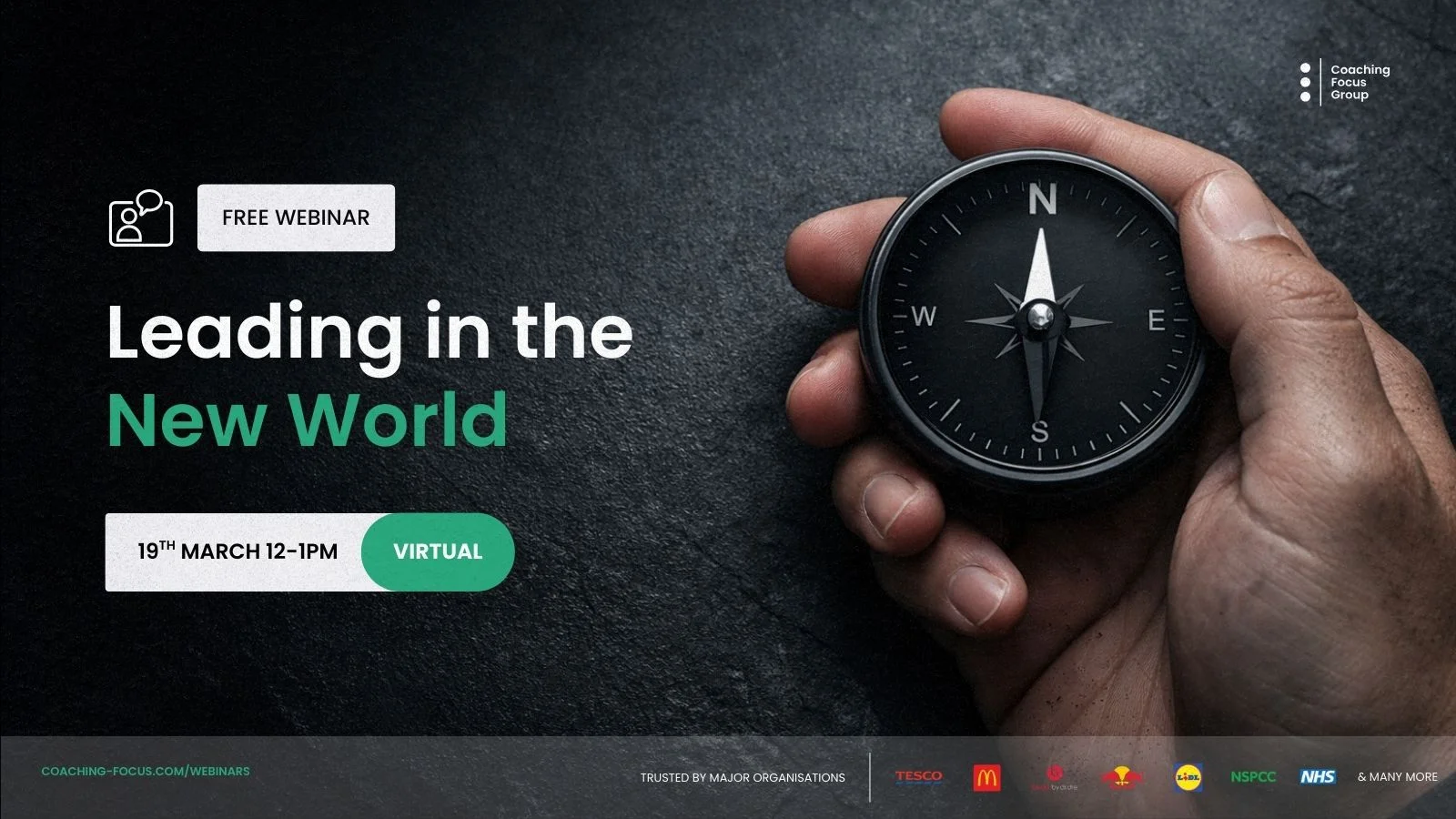Teamwork Reimagined: Coaching Teams to High Performance in the New World of Work

The world of work has changed...again.
Everywhere I go, leaders are juggling hybrid teams, endless meetings, and a pace that never seems to slow down. Teamwork doesn’t look like it used to. It’s less about sitting around the same table and more about staying connected across screens, schedules, and time zones.
What I’m seeing is this: the best teams aren’t the ones with the brightest individual stars, but the ones that know how to work as one. They’ve got trust, rhythm, and the space to think together. Not just harder, but smarter.
So the question is, how do we create that? How do we help teams truly thrive when everything around them keeps shifting?
Let’s dig in.
Why Does Teamwork Matter More Than Ever?
Teamwork isn’t just a nice-to-have. It’s the heartbeat of business impact.
When teams work well together, they don’t just hit targets—they adapt faster, innovate more freely, and sustain energy even under pressure. In today’s complex world, no single person holds all the answers. It’s the connection between people that fuels progress.
High-performing teams share a few vital traits:
- Shared purpose: Everyone understands why they exist and who they serve.
- Psychological safety: People can speak up, question, and challenge without fear.
- Accountability: Goals are owned collectively, not avoided individually.
- Learning mindset: Mistakes become data, not shame.
- Trust: The invisible thread that turns collaboration into performance.
These sound simple—but they’re hard-won through conscious effort, not chance.
What Role Does a Coach Play in Team Effectiveness?
Team coaching isn’t about “fixing” people. It’s about unlocking the system—helping the team see itself, reflect on how it works, and design new ways forward.
A great team coach focuses on the space between people as much as on the people themselves.
Here’s how to coach for performance in today’s world:
- Start with purpose, not process
Ask, Why does this team exist? Who depends on us, and what value do we deliver?
A strong shared purpose anchors the team through uncertainty. - Build connection before correction
Trust must precede truth. Create opportunities for human connection—informal check-ins, shared storytelling, moments to listen deeply. - Coach the system, not the symptoms
Instead of chasing individual behaviours (“she talks too much”, “he’s disengaged”), help the team notice patterns—how they make decisions, handle conflict, and share information. - Foster accountability as a collective act
High performance happens when peers hold each other accountable. Facilitate honest, forward-focused conversations about commitments and results. - Encourage reflective rhythm
Build pauses into the team’s cycle—monthly retrospectives or learning reviews—to evaluate what’s working and what’s draining energy. - Model adaptive leadership
As a coach or leader, show what flexibility looks like. Admit when you don’t know. Celebrate experiments. Signal that learning beats perfection.

How Can Leaders Navigate the “New World” of Team Dynamics?
Hybrid work has blurred lines and stretched trust. Coaching in this context requires new muscles.
- Attention is currency. Encourage shorter, sharper meetings with clear outcomes. Save deep work time.
- Inclusion is intentional. Virtual spaces can hide voices. Rotate facilitators, invite input in multiple formats, and check who’s missing from the conversation.
- Belonging beats proximity. Whether someone’s on-site or remote, they need to feel seen and valued. Recognition and empathy travel best when made visible.
The best teams treat distance not as a barrier but as a design challenge.
What Does It Take to Move a Team From Good to Great?
High performance isn’t static. It’s a state of continuous teaming. The top teams don’t just adapt to change—they evolve with it.
A team coach becomes the mirror and catalyst for that evolution: revealing blind spots, championing learning, and celebrating progress in small but powerful increments.
When done well, team coaching transforms not just performance but culture. It turns groups of talented individuals into living systems—resilient, creative, and ready for whatever comes next.
How Can Leaders Build Teams That Thrive in Uncertainty?
The new world of work demands more than coordination; it calls for collaboration with consciousness. Coaching teams to high performance isn’t about pushing harder—it’s about unlocking awareness, trust, and purpose.
Because when teams connect at that level, they don’t just perform. They transform.
FAQs About Team Effectiveness
1. What makes a team truly effective?
Effective teams share a clear purpose, mutual trust, accountability, and psychological safety. They communicate openly, learn continuously, and align around shared goals.
2. How can coaching improve team performance?
Team coaching helps teams reflect on how they work together. Coaches facilitate awareness, guide honest conversations, and help teams design better ways of collaborating.
3. What challenges do hybrid teams face most often?
Hybrid teams often struggle with uneven communication, lack of visibility, and reduced trust. Effective leaders address this through clarity, empathy, and intentional inclusion.
4. How can leaders build trust within teams?
Start by modelling openness and reliability. Follow through on commitments, invite honest feedback, and create space for vulnerability and shared learning.
5. Is team coaching only for struggling teams?
Not at all. Many high-performing teams use coaching proactively to sustain success, sharpen collaboration, and stay agile in fast-changing environments.
In a Nutshell: Coaching Teams for High Performance
High-performing teams don’t happen by accident. They’re built on purpose, trust, and leaders who know how to bring people together.
In today’s fast-changing world, the best leaders focus on connection over control and teamwork over hierarchy.
When you coach the whole team, not just individuals, people communicate better, adapt faster, and perform at their best.
Teams thrive when leaders create space for honesty, accountability, and steady learning.
Trayton Vance
Trayton Vance is the Founder and Managing Director of Coaching Focus Group, one of the UK’s leading leadership coaching consultancies working with clients such as McDonalds, Beats by Dre, Paramount and many more.
Coaching Focus Group
Specialists in leadership coaching, workplace coaching programmes, and building coaching cultures that stick.
[FREE WEBINAR]
March 19 - 12pm to 1pm GMT

You might be interested in...
Employee Engagement Series












